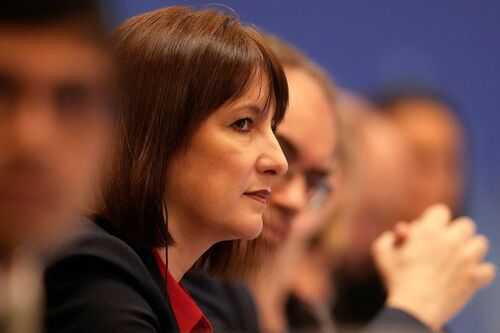
There are fears the upcoming increase on April 7 could push more pensioners over the income tax threshold, leading to an increase in the number of them paying tax. The 4.1% rise for the 2025/6 financial year will see the state pension jump from £11,502 to £11,973 annually.
However, Chancellor announced at the that the personal allowance for tax, which is the amount someone can earn before they pay tax, will stay frozen at £12,570 until the start of the 2028/29 financial year. This means that any pensioners who had an extra income exceeding £1,068 in 2024/5 through employment or other pensions would be subject to taxation. However, in 2025/6, an income above just £597 could result in a tax bill.
For most people, this would be automatically deducted via PAYE on employment and tax on private pensions. Those who do not pay tax automatically through deductions would receive a tax bill from HMRC the following summer, which must be paid by January of the subsequent year. Currently, nearly 8 million (62%) out of the 12.9 million State Pensioners in the UK are already paying some form of tax during their retirement. A person receiving the full new state pension, with no other source of income, would not be liable for income tax.
A has urged the government to raise the income tax threshold to £20,000, stating: "We think this would help low earners to get off benefits and allow pensioners a decent income." The petition recently hit 12,000 signatures, meaning it will get a written response from the government. If it gets 100,000 signatures, the petition would be considered for debate in Parliament.
The 13 year old auto-enrolment scheme in workplaces means that more people will have a higher income during retirement and are likely to pay tax. This is typically deducted from their private pension. In retirement, any tax owed is calculated based on the amount of income earned above the threshold, not the total additional income. For instance, if an individual has a total annual income of £13,000, they would be taxed on £430 - the amount exceeding the £12,570 threshold. This person would then owe HMRC 20% of the £430 (or 19% in ), which is the starter rate of tax.
The Labour Government has pledged to maintain the Triple Lock for the next five years. This guarantees that the New and Basic State Pensions will increase each year by whichever is highest between the average annual earnings growth from May to July (4.1%), CPI in the year to September (1.7%), or 2.5 per cent.
Income rates and tax bands in England are as follows:
£12,571 to £50,270 - 20%.
£50,271 to £125,140 - 40%.
over £125,140 - 45%.
In Scotland, the income rates and tax bands are:
£12,571 to £14,876 - 19%, Starter rate
£14,877 to £26,561 - 20%, Scottish basic rate
£26,562 to £43,662 - 21%, Intermediate rate
£43,663 to £75,000 - 42%, Higher rate